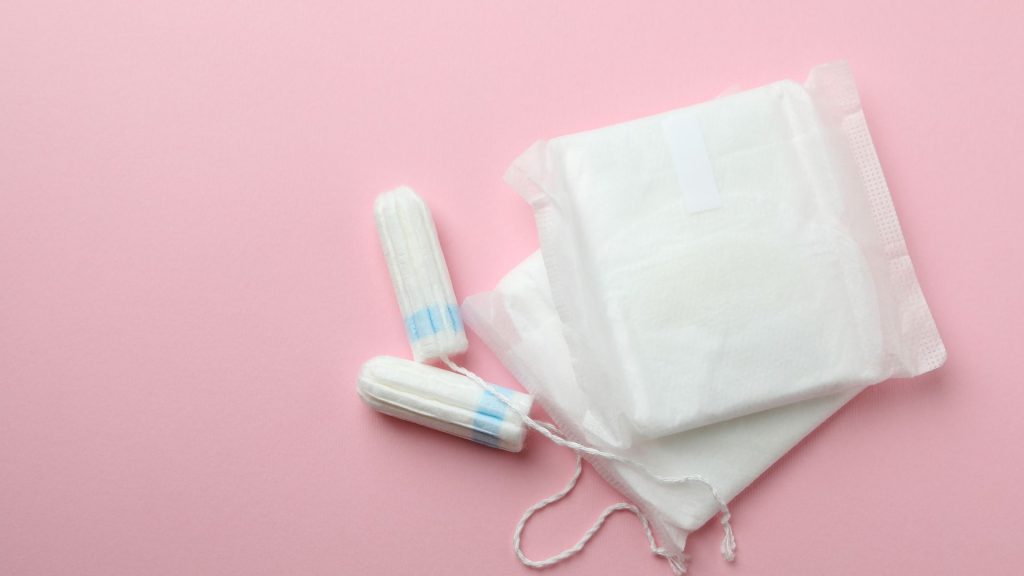While chemicals found in tampons may raise legitimate concern, little research has been conducted to examine health outcomes directly attributable to chemical exposure from period products. If possible, opt for tampons without synthetic fibers, additives and fragrance as well as being chlorine bleach and dioxin-free.
Many tampon manufacturers claim that all-natural and organic tampons will reduce your risk of toxic shock syndrome, an uncommon yet life-threatening complication from bacteria. But, according to OB/GYNs, changing it every 4-6 hours and following instructions for use are what truly lower risk.
Organic Cotton
Organic tampons use cotton grown using environmentally responsible practices, which ensures no harmful herbicides or pesticides pollute our surroundings or waterways and decreases strain on planet resources by using less energy and water to grow the crop.
Organic cotton uses less chemicals in its processing, further limiting potential hormone-disrupting ingredients in feminine hygiene products. Organic tampons feature eco-friendly materials with plant-based applicators to provide more comfort during insertion.
Non-organic tampons often consist of rayon, a semi-synthetic fibre bleached with elemental chlorine gas (which may be visible on packaging). Their outer layer often features polyester or polypropylene plastics containing potentially hormone disrupting chemicals, with new legislation in New York State mandating that all menstrual product makers disclose all ingredients before selling products like this tampon to you. You now have more insight into what your tampon contains before purchasing one!
No Pesticides
Many conventional tampons contain pesticides used in cotton production, which poses a major concern as women may absorb these chemicals through the vaginal canal and they could potentially end up in the environment where they could cause disruption of hormone balance and harm ecosystems.
Chemicals from tampons can enter the body through vaginal canal in high quantities and cause irritations that lead to yeast infections or toxic shock syndrome (TSS), an extremely rare but life-threatening condition.
To avoid irritation, opt for organic unbleached tampons with cardboard applicators rather than plastic ones. Many plastic tampon applicators contain toxic phthalates that absorb through your skin and disrupt hormones; plus they don’t biodegrade – adding further pollution. Avoid plastic tampons and pads altogether which are among the top five most frequently found washed up on European beaches; instead try reusable cloth pads, nonplastic applicator tampons or menstrual cups like the DivaCup or Keeper instead.
No Dioxin
After the TSS scare in 1980, several synthetic materials were banned from tampons; today the FDA only approves of those made from cotton, rayon or combinations thereof; wood pulp used to manufacture rayon must also be bleached during production, which can produce dioxins during this process.
Dioxins have long been recognized to wreak havoc on hormones, throwing them off-kilter and decreasing fertility while increasing TSS risk. Therefore, it’s crucial that only natural, unscented tampons be used.
However, it can be challenging to ascertain exactly what’s inside a tampon as manufacturers aren’t required to list ingredients on their packaging. But you can look out for products with an “Made Safe” label which indicates an organization dedicated to ingredient transparency and responsible sourcing as well as being free from pesticides, chemicals, dioxins dyes fragrances as well as being hypoallergenic and dermatologically tested to help protect vulvae from irritation.
No Titanium Dioxide
Last summer, a viral TikTok post warned that titanium dioxide used by many tampon brands to keep their string white could cause period cramps, ovarian cysts and cancer. While current research is lacking clarity on these claims, OB-GYNs advise knowing what’s in your menstrual products and opting for ones without this additive.
Titanium dioxide (also referred to as E 171) is a naturally occurring mineral used in everyday products like food, cosmetics and sunscreen to keep colors white or filter ultraviolet rays. It has been approved by the European Food Safety Authority as safe for food use and has not been linked with cancer or reproductive harm in animal studies.
Dioxin-laden dioxin byproducts produced during bleaching cotton and rayon fibers that make up certain tampons and pads may contain dioxins, which have been linked with breast cancer, endocrine disruption and fertility problems. If possible, search for unbleached (or chlorine-free bleached) options made with organic cotton.


